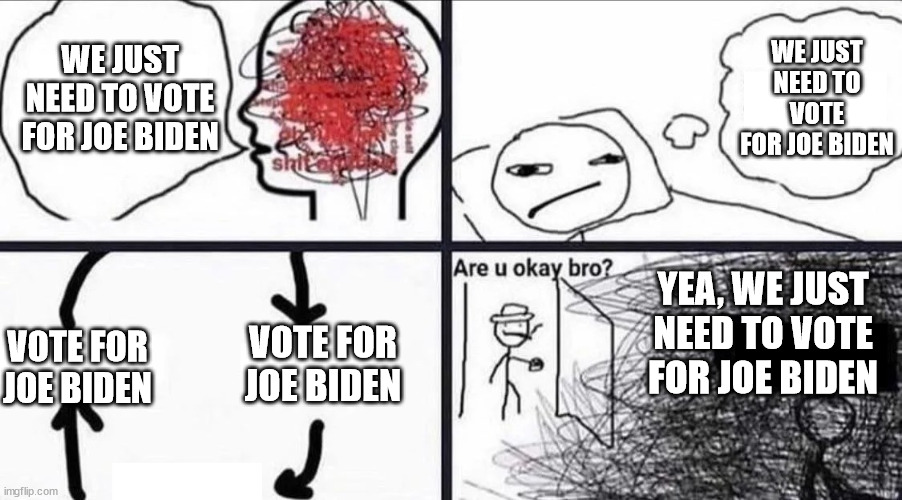

My man, stuttering is not the same thing as anomia or other (related) speech disfluencies. Even so, they are all neurological symptoms and tend to appear amidst neurological decline and dimensia, even if not exclusively.
It would be one thing if he were simply stuttering his words or misplacing nouns in a sentence, but he has also been forgetting things like the deaths of colleagues and mis-remembering when things occurred. You can pretend those are just silly mistakes that anyone could make, but you shouldn’t act surprised when it causes people to lose confidence in him.








Nah, it accepts a link if you have it, but you can typically choose an image from gallery and creates a link with your home instance as the host.
I’ve never had a problem.